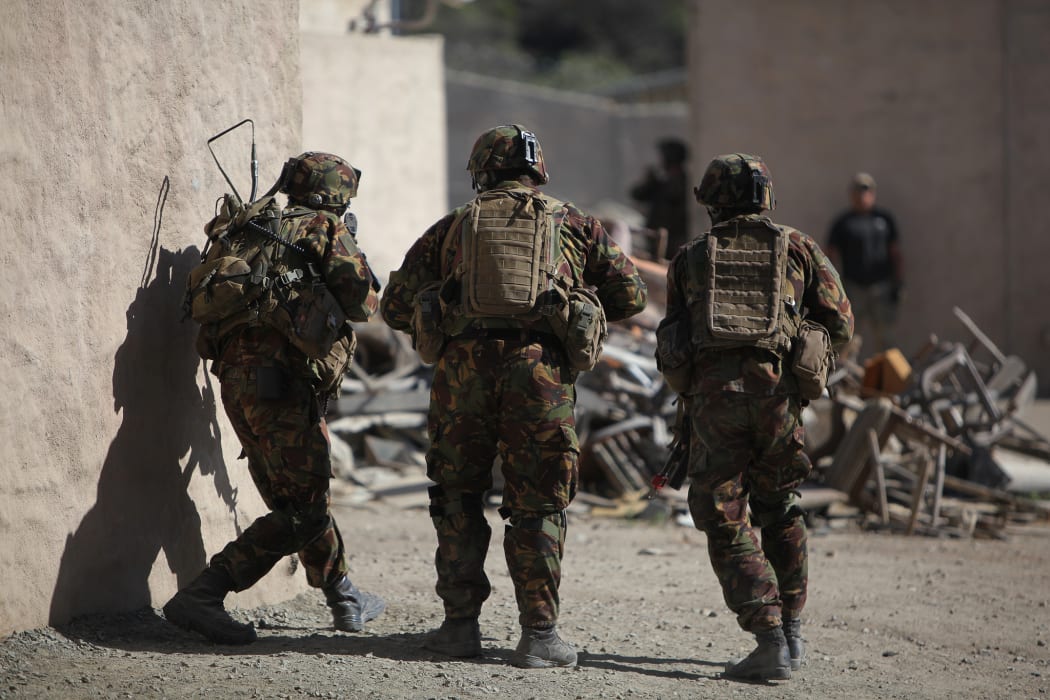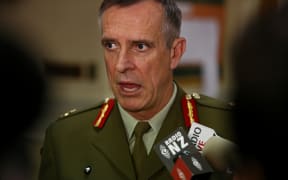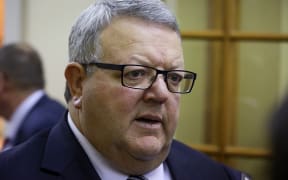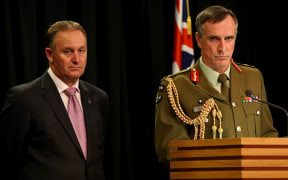Prime Minister John Key dismissed Opposition accusations that the Government's decision to send troops to Iraq is based on superficial advice.

New Zealand soldiers taking part in a military exercise in California in 2013. Photo: NZ DEFENCE FORCE / US Marine Corps
Mr Key said nothing should be read into papers, obtained by Radio New Zealand under the Official Information Act, because most of the advice he received has been withheld.
The advice from the Security and Intelligence Group was heavily censored but said most commentators blamed the rise of Islamic State on the previous Iraqi Government for excluding Sunnis from positions of influence.
The Labour and Greens parties said that advice was skewed and wrong.
But Mr Key said that was nonsense.
"What gets released under the Official Information Act is a very tiny amount of the advice I get and so much advice is withheld because in that instance it's highly classified and.. it would be inappropriate to release it.
"So you simply can't take one document and say that's the level of advice we get," he said.
But in his public statements on the threat of Islamic State in Iraq Mr Key has consistently repeated the line blaming the former Iraqi government.
Labour and the Greens say that ignores the part the American invasion in 2003 played in creating the conditions for the rise of Islamic State.
Labour's foreign affairs spokesperson David Shearer said he could not understand why so much of the advice had been withheld.
"We've got a document which is supposedly unclassified yet there's page after page after page which is completely blank and it seems to me that's, that's ridiculous and begs the question: one, whether there's something to hide or two, their analysis is so, is so weak that they didn't want to release it," he said.
Most of the advice that has been made public repeats much of what has been reported in the world's newspapers.
The senior research fellow at London's Royal Institute of International Affairs, Claire Spencer, also disagreed with the analysis that most commentators blamed the previous Iraqi Government for the rise of Islamic State.
Dr Spencer told Parliament's foreign affairs, defence and trade select committee the United States invasion and its decision to remove Sunni officers from the Iraqi army had also played a part.
"The Sunnis have not only been, you know, disorganised by this but they've also in the course of the last decade fought back, you know in 2006, 2007 and this is where the first elements of what's now become ISIS (Islamic State) crept into the equation," she said.
Dr Spencer told Radio New Zealand she was interested that Mr Key's advisers appeared to give that no consideration.
Mr Shearer said unless there was reference to it in the material which had been deleted from the released papers, then there were significant omissions in the advice Mr Key received.
"Some of the redacted parts might have more in-depth analysis but on the basis of what I've read it is a very superficial analysis on which we have based the decision to deploy troops."
The Green Party's international affairs spokesperson Kennedy Graham is also not impressed with the advice given to Mr Key.
"They do simply become descriptive of the rise of ISIL (Islamic State) in 2014 and to the extent they have any analysis it's simply to blame it all on the Iraqi Prime Minister and if that's all the assessments that have been done I think the advice to Prime Minister John Key is dangerously skewed."
Dr Graham said Mr Key should have released more of the advice he had received.
"Their argument for redacting so much is that making it available to the media and to Opposition in Parliament might prejudice the defence of New Zealand, international relations of New Zealand or the confidential trust of another club member's intelligence agency. But if you accept that then it follows that the New Zealand Government is sharing more information and places greater trust in foreign officials than it does its own citizens," he said.
But Mr Key said there was good reason to withhold the advice.
Radio New Zealand requested other information and advice about the deployment to Iraq and is still waiting for a final response from the Minister of Defence, Gerry Brownlee.





